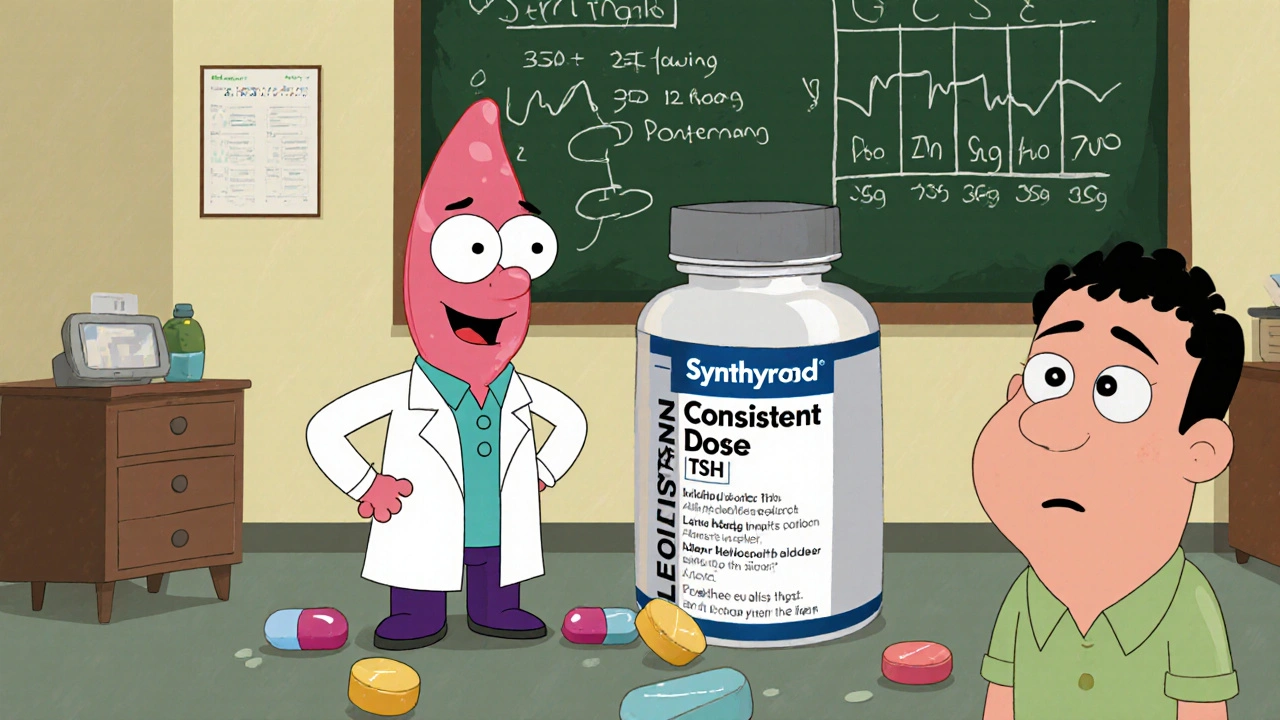Generic Levothyroxine: What It Is, How It Works, and What You Need to Know
When your thyroid doesn’t make enough hormone, generic levothyroxine, a synthetic version of the thyroid hormone T4 used to treat hypothyroidism. Also known as levothyroxine sodium, it’s the most common prescription for people with underactive thyroids—used by millions every day to keep energy, weight, and mood stable. Unlike brand names like Synthroid or Levoxyl, generic levothyroxine works the same way but costs far less. That’s why most doctors start patients on the generic version. But here’s the catch: even though the active ingredient is identical, small differences in fillers or how it’s absorbed can sometimes cause symptoms to shift if you switch brands or generics too often.
That’s why sticking with the same generic version matters. If you’ve been on one for months and feel fine, don’t randomly switch to another pharmacy’s version without checking with your doctor. Some people notice changes in heart rate, sleep, or fatigue when they do. The thyroid hormone replacement, the medical approach to restoring normal thyroid function using synthetic hormones isn’t one-size-fits-all. Dosing depends on your age, weight, other health conditions, and even what other meds you take. For example, if you’re on iron, calcium, or antacids, they can block levothyroxine from being absorbed—so you need to space them out by at least four hours.
And while hypothyroidism treatment, the long-term management of low thyroid function through medication and lifestyle is usually straightforward, it’s not always simple. Blood tests (TSH and sometimes free T4) are needed every few months until your dose is locked in. Then, once a year is typical—if you’re stable. But if you’re pregnant, older, or have heart disease, your doctor might check more often. You also can’t just stop taking it. Skipping doses can bring back fatigue, weight gain, brain fog, and even raise your risk of heart problems over time.
There are alternatives, like natural desiccated thyroid (NDT) from pig thyroids, but most endocrinologists stick with levothyroxine because it’s more predictable. NDT contains both T3 and T4, but the ratio isn’t the same as what your body makes, and studies show it doesn’t work better for most people. Some patients swear by it, but the science doesn’t back it up as a first choice. That’s why generic levothyroxine remains the gold standard.
What you’ll find in the posts below isn’t just about levothyroxine—it’s about the bigger picture. You’ll see how thyroid meds interact with other drugs, how to spot when your dose might be off, and how to avoid common mistakes that make treatment less effective. Whether you’re just starting out or have been on it for years, these guides give you real, no-fluff advice you can use right away. No jargon. No hype. Just what works.
Synthroid vs Alternatives: What Works Best for Thyroid Treatment in 2025
Synthroid and generic levothyroxine both treat hypothyroidism, but differences in fillers and absorption can affect how you feel. Learn which alternatives work best based on your health needs and budget in 2025.






